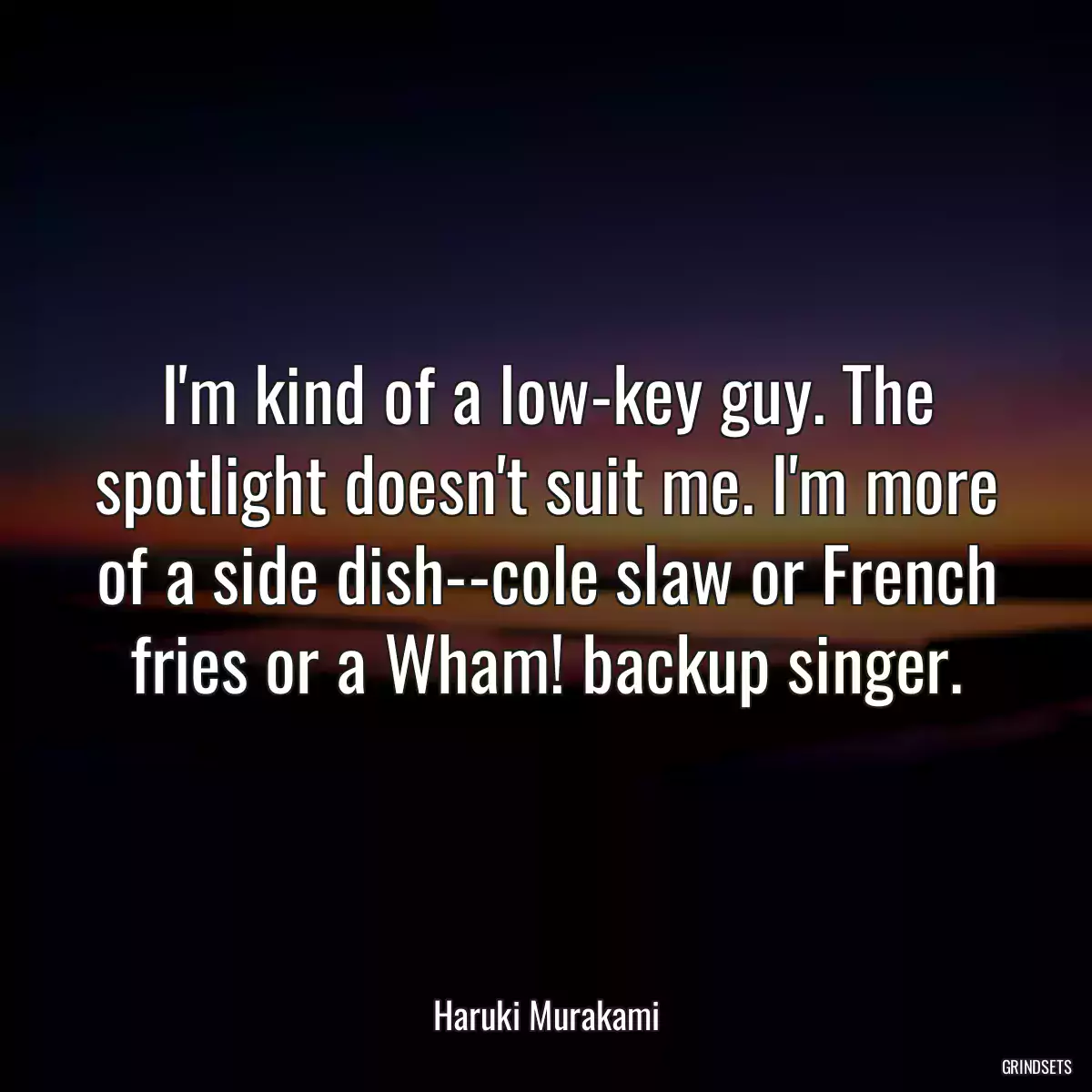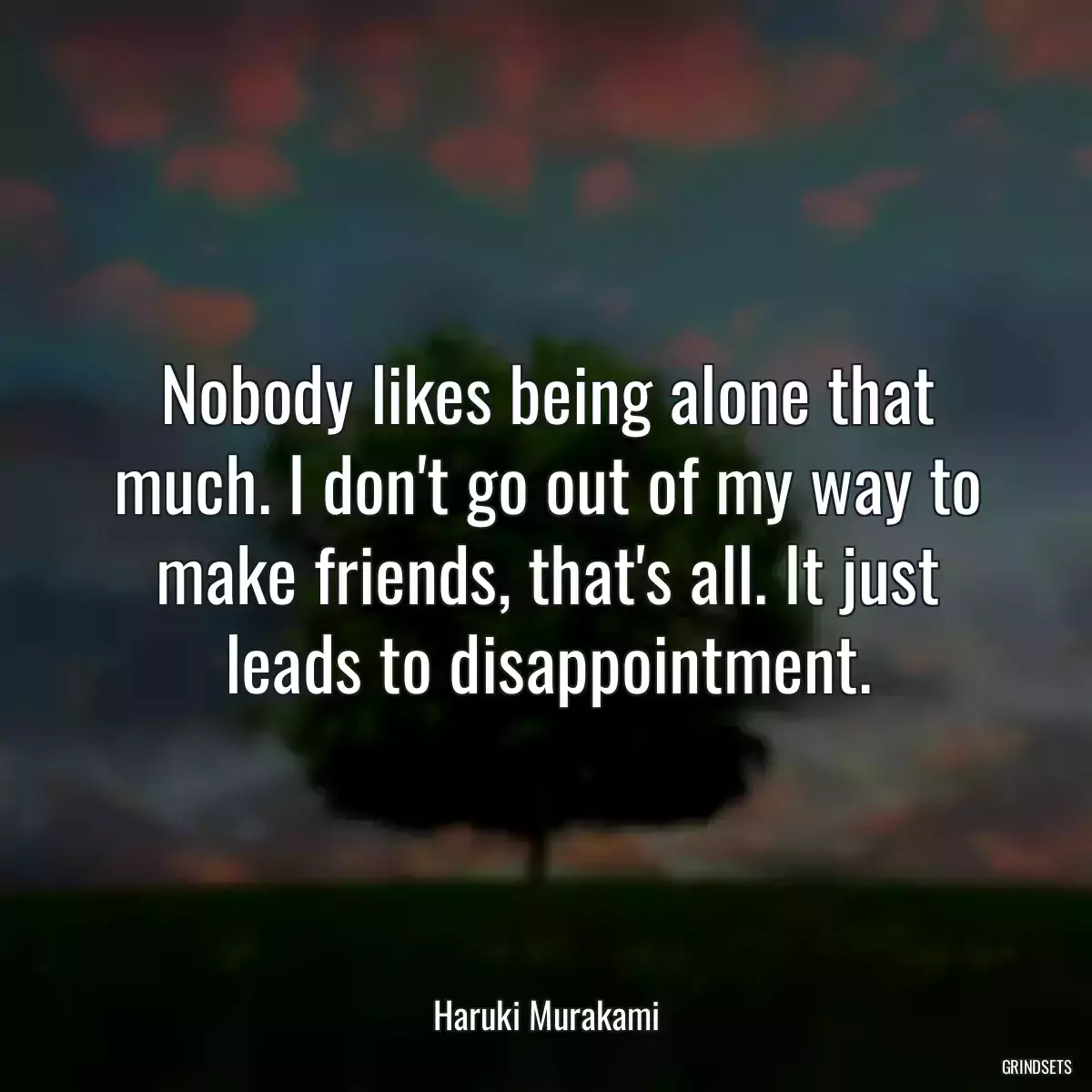
Quotes Haruki Murakami - page 7
Find dozens of Haruki Murakami with images to copy and share.

I was always hungry for love. Just once, I wanted to know what it was like to get my fill of it -- to be fed so much love I couldn't take any more. Just once.
What if I’ve forgotten the most important thing? What if somewhere inside me there is a dark limbo where all the truly important memories are heaped and slowly turning into mud?...the thought fills me with an almost unbearable sorrow.
When I was little, I had this science book. There was a section on 'What would happen to the world if there was no friction?' Answer: 'Everything on earth would fly into space from the centrifugal force of revolution.' That was my mood.
You may also like
She was, if anything, on the plain side, at least not the type to attract men wherever she went. But there was something in her face that was meant for me alone. Everytime we met, I took a good look at her. And loved what I saw.
I saw that she was crying. Before I knew it, I was kissing her. Others on the platform were staring at us, but I didn't care about such things anymore. We were alive, she and I. And all we had to think about was continuing to live.
The world in books seemed so much more alive to me than anything outside. I could see things I'd never seen before. Books and music were my best friends. I had a couple of good friends at school, but never met anyone I could really speak my heart to. We'd just make small talk, play soccer together. When something bothered me, I didn't talk with anyone about it. I thought it over all by myself, came to a conclusion, and took action alone. Not that I really felt lonely. I thought that's just the way things are. Human beings, in the final analysis, have to survive on their own.
By then running had entered the realm of the metaphysical. First there came the action of running, and accompanying it there was this entity known as me. I run; therefore I am.
People need routines. It's like a theme in music. But it also restrictsyour thoughts and actions and limits your freedom. It structures your priorities and in some cases distorts your logic.

I think memory is the most important asset of human beings. It's a kind of fuel; it burns and it warms you. My memory is like a chest: There are so many drawers in that chest, and when I want to be a fifteen-year-old boy, I open up a certain drawer and I find the scenery I saw when I was a boy in Kobe. I can smell the air, and I can touch the ground, and I can see the green of the trees. That's why I want to write a book.
Maybe time is nothing at all like a straight line. Perhaps it's shaped like a twisted doughnut. But for tens of thousands of years, people have probably been seeing time as a straight line that continues on forever. And that's the concept they based their actions on. And until now they haven't found anything inconvenient or contradictory about it. So as an experiential model, it's probably correct.
Life doesn't require ideals. It requires standards of action.
Is action merely the incidental product of thought, or is thought the consequential product of action?